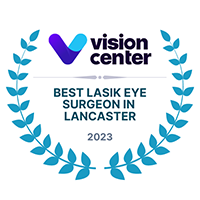Are cataracts robbing you of clear vision? You’re not alone.
Many people experience the onset of cataracts as they age. Cataracts can develop in one or both eyes.
Cataracts occur when the lens of the eye becomes cloudy. They can cause blurry vision, trouble with seeing at night, and even vision loss. They can keep you from enjoying life, or completing your daily routine.
If cataracts are robbing you of your vision, why haven’t you considered having cataract surgery? It is the only way to remove cataracts, and it restores any vision you have lost.
You can even get a premium artificial lens replacement that will correct any preexisting vision problems. Keep reading for 3 signs you could have cataracts!
1. Foggy Vision
When you have cataracts, one of the most common signs is foggy or cloudy vision. This is due to proteins clumping together on the lens of the eye.
As the cataract grows, so does the cloudiness. This clouding of the lens can make your vision blurry. Many cataract patients describe this blurred vision as “foggy.” Cataracts can make it seem like you are looking through a foggy window.
As the cataract grows, this foggy vision worsens. Eventually, your foggy vision will make it impossible to complete daily activities. When this happens, you’ll need cataract surgery.
2. Trouble Seeing at Night
Cataracts can make it hard for you to get around at night. This is because cataracts can make you see halos around lights.
Whether it’s lights on your walkway, a porch light, street lights, or car headlights, this can make it hard to see at night. If you’re used to driving at night, it becomes downright dangerous with cataracts.
It is important that you do not try to drive at night if you have cataracts. Cataract surgery is the only way to remove your cataracts. After having surgery, you can go back to driving at night.
3. Vision Loss
Not all cataract patients experience blurry or foggy vision or even halos at night. Some patients only experience vision loss.
This is partial blindness, and it will get worse as the cataract grows. Vision loss can come on gradually, or suddenly.
Call your doctor right away if you experience a sharp and dramatic loss of vision. You will likely need cataract surgery but they also need to rule out other more serious vision conditions.
Cataract Surgery
Cataract surgery is a quick and painless, outpatient procedure that usually takes under an hour to complete. You’ll be awake during the procedure. Thanks to numbing eye drops, you won’t feel any pain and will lay awake with your eyes open.
During the procedure, your surgeon will create a small incision in your eye to remove the cloudy natural lens. They will replace your natural lens with an artificial lens called an intraocular lens (IOL). You will have your choice between a standard and a premium IOL.
Standard IOL
A standard IOL, known as a monofocal lens, will restore any vision that you lost from cataracts. You will still need to use prescription glasses or contact lenses to correct pre-existing vision problems. A monofocal lens can only correct one distance of vision.
Premium IOL
There are several kinds of premium IOLs to choose from, so discuss your options with your surgeon. These IOLs will provide you with clear vision and correct refractive errors.
Most people no longer need to wear glasses or contacts after choosing a premium lens.
Ready to say goodbye to cataracts? The first step is a cataract screening. Schedule yours today at Chesen Laser Eye Center in West Reading, PA!
Why hold onto your fears that are holding you back when clear vision is waiting for you after cataract surgery?






